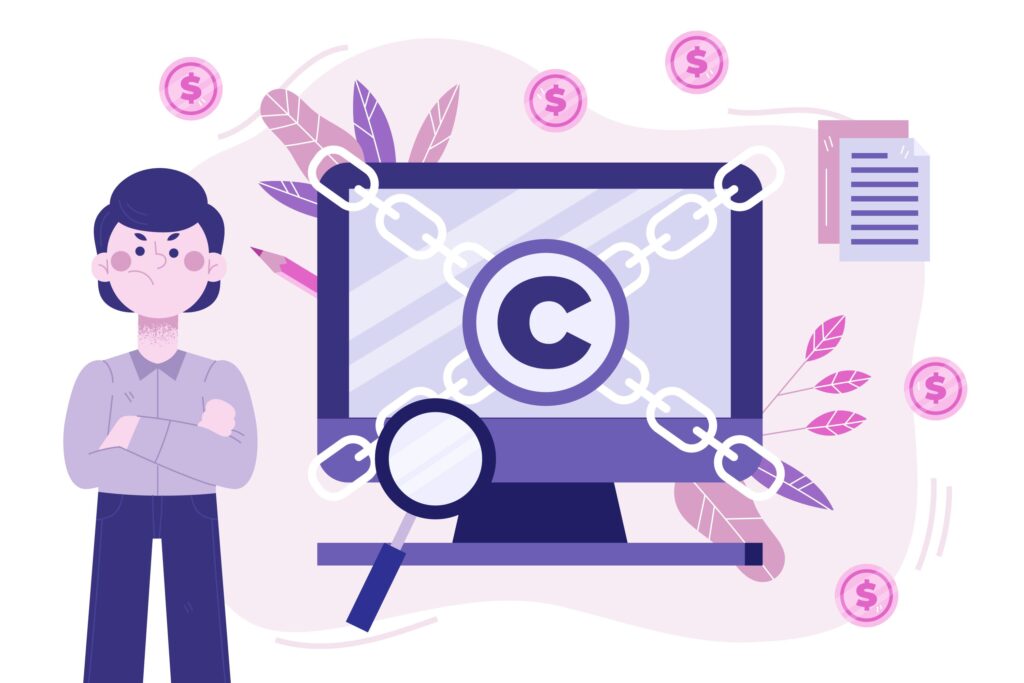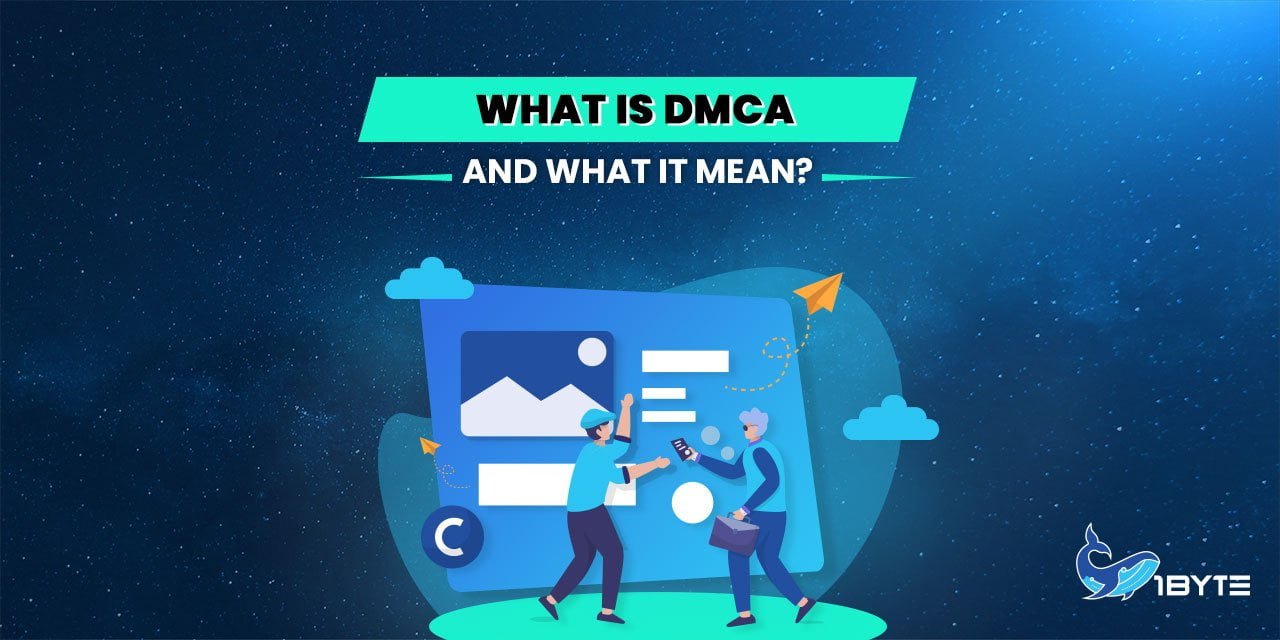If you’ve ever been notified that one of your blog posts or articles has been removed because it violated someone’s copyright, then you’ve already known about the Digital Millennium Copyright Act (DMCA). The DMCA was designed to update copyright law for the digital age and protect intellectual property online. But what exactly is DMCA, and how does it impact businesses? In this post, we’ll take a closer look at what DMCA is and how it affects our everyday lives.
What is DMCA? DMCA meaning
DMCA stands for Digital Millennium Copyright Act. It is a US copyright law that relates to the process of removing content from the internet. The DMCA created a new legal framework that made it easier for copyright holders to enforce their rights online. The law provides a set of guidelines that must be followed to have the content removed. One of the key features of the DMCA is the safe harbor provision, which protects internet service providers from liability for infringement if they take certain steps to remove infringing content from their servers.
The DMCA also created a new notice and takedown procedure that allows copyright holders to quickly have infringing content removed from a website. If a copyright holder sees their work being used without permission on a website hosted in the United States, they can send a DMCA claim to the hosting provider. The hosting provider is then required to remove or disable access to the infringing content. The DMCA has been successful in protecting copyrighted material online and has served as a model for similar laws in other countries.

What is the DMCA used for?
According to the Digital Millennium Copyright Act, copyright owners have the right to send takedown notices to services or individuals distributing their copyrighted works without permission. These notices must include specific information about the infringement, and the recipient must then remove the infringing material or face legal action. This system provides a way for copyright holders to quickly and efficiently stop the unauthorized distribution of their works. The DMCA also includes provisions that make it illegal to circumvent copy protection measures and to manufacture or distribute tools or techniques for circumventing copy controls. Overall, the DMCA has successfully combated piracy and protect copyrighted works in the digital age.
FURTHER READING: |
| 1. DMCA Ignored Countries List in 2023 |
| 2. DMCA Notice: Everything You Need to Know |
Why is DMCA important?
In 1998, President Bill Clinton signed the Digital Millennium Copyright Act (DMCA) into law. The DMCA was designed to update copyright law for the digital age, and it included a number of provisions that have had a significant impact on the internet and technology. One of the vital aspects of the DMCA is the safe harbor provision, which protects internet service providers from copyright liability. Without this provision, most of the services we rely on today would not exist.
However, the DMCA has also been used to support private censorship and hindered privacy, security, as well as competition. As we enter the digital age, it is important to strike a balance between protecting intellectual property and ensuring that innovation can flourish.

What is the purpose of the DMCA?
You know how difficult it can be if you have ever had your content stolen and posted on another website without your permission. You can use the DMCA to get your content removed from the website. The DMCA is a law that protects your intellectual property and gives you the right to have your content removed from a website if it has been posted without your permission.
The content on your site is covered by the DMCA law, so spending time to fulfill it is well worth it. The DMCA is essential for your business. Here is why:
Prevent others from stealing your content
You would have spent a substantial amount of money and time creating a content-rich website with the help of WordPress professionals. You hire the most reliable SEO agency to boost your website ranking. However, does your business hold a system to track, monitor, and resolve copyright infringement? If not, you should consider implementing one. This is because detecting copyright infringement cases as early as possible is necessary to maintain your competitive edge online.
One main reason others steal content from your website is because of the high performance of your site from an SEO perspective. If they are copying from your site, it could result in a drop in your SEO rankings. Therefore, having the plan to deal with copyright infringement is critical for organic organizations that rely on their online presence to generate revenue. DMCA has a stellar reputation when it comes to offering services that help website owners protect their original content from being stolen and used without permission.
Protect Yourself from Copyright Infringement
When it comes to online business, copyright infringement is a real concern. If you are found to be displaying or selling copyrighted material, you could be facing some hefty penalties. That’s why it’s important to be proactive about protecting yourself from copyright infringement. You can start by registering your site with the Digital Millennium Copyright Act (DMCA). This will provide you with certain legal protections if someone does attempt to sell copyrighted material on your site. Of course, it’s also important to have strict policies in place regarding the use of copyrighted material. Making sure that you and your employees are aware of copyright law is the best way to avoid any potential problems down the road.
Leverage 1Byte’s strong cloud computing expertise to boost your business in a big way
1Byte provides complete domain registration services that include dedicated support staff, educated customer care, reasonable costs, as well as a domain price search tool.
Elevate your online security with 1Byte's SSL Service. Unparalleled protection, seamless integration, and peace of mind for your digital journey.
No matter the cloud server package you pick, you can rely on 1Byte for dependability, privacy, security, and a stress-free experience that is essential for successful businesses.
Choosing us as your shared hosting provider allows you to get excellent value for your money while enjoying the same level of quality and functionality as more expensive options.
Through highly flexible programs, 1Byte's cutting-edge cloud hosting gives great solutions to small and medium-sized businesses faster, more securely, and at reduced costs.
Stay ahead of the competition with 1Byte's innovative WordPress hosting services. Our feature-rich plans and unmatched reliability ensure your website stands out and delivers an unforgettable user experience.
As an official AWS Partner, one of our primary responsibilities is to assist businesses in modernizing their operations and make the most of their journeys to the cloud with AWS.
Conclusion
DMCA is a copyright law that provides guidelines for online service providers in case of copyright infringement. If you think your work has been duplicated and it constitutes copyright infringement, you can file a DMCA takedown notice with the website or service provider. In conclusion, the DMCA is a very important part of internet law. It helps to protect the rights of copyright holders and to make sure that their work is not being used without permission. It is also important for internet service providers to be aware of the DMCA and to take steps to ensure that they are in compliance with it.

